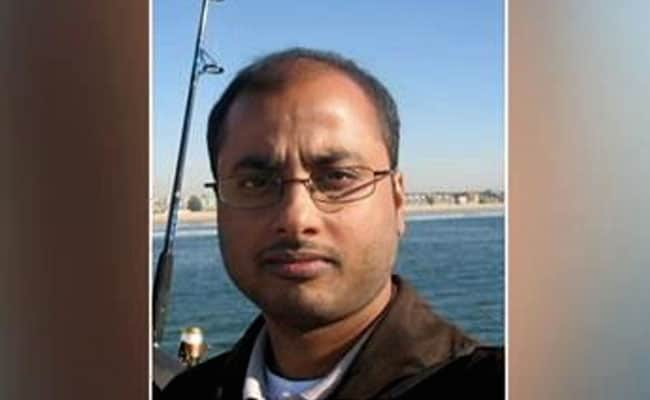Mainak Sarkar...St Michael's School, Durgapur...Why did the name ring such a bell? It could have been because both the first name and the surname are so common in Bengal. I couldn't place him, but I knew the school straight off. I've conducted numerous quizzes in Durgapur, and St Michael's often sent teams back in the 1990s to compete. Was Mainak on one of those teams? He was a good student, a school topper - it was likely that he represented the school, perhaps?
These stray thoughts struck me as I read and saw (on television) reports of the terrible tragedy at the University of California in Los Angeles (UCLA). An old student comes back to his alma mater and murders his PhD guide, shortly after killing his former wife. Can it get more bizarre? Some 50 years ago, there was a similar case involving Prosenjit Poddar, like Sarkar an IIT Kharagpur alumnus who went to the United States for higher studies. Poddar went to the University of California at Berkeley, misconstrued a friendship with an American girl as an abiding commitment to a relationship, and murdered her in a fit of madness.
One cannot forgive such crimes, but having met and known many who have made that trek from small towns and modest backgrounds to the "burbs" (suburbs) of the typical American city and the lifestyle this entails, I think I can understand the context. Sarkar was from Durgapur and Poddar from Balurghat, a frontier town in north Bengal. For them, the trip to America was a geographical, social, cultural and life-altering dislocation.
Of course, this is not the fate of the entire diaspora and I have no intention of painting a massive community - with millions of members and countless high-achievers - with the same brushstroke. Not at all. This is only to share anecdotal evidence and personal stories that I have seen or heard about. The topper in my class in St Xavier's was brilliance personified. He was a quiet studious boy from a very middle-class Bengali family. Some of us from English-speaking backgrounds and a more go-getting social life may have overwhelmed him, but on examination day, he hammered us silly. He left for the United States for higher studies, did his PhD and became a renowned physicist. He married a local girl, then moved back to Kolkata in his 40s to be with his parents.

Mainak Sarkar had intended to kill a second professor besides shooting engineering professor William Klug at a small office on the campus.
My former classmate's case is a rarity. So many of those who leave never come back. The fact that Sarkar stayed on in the US, and even married an American girl apparently left his parents aghast. There was nothing wrong with his decision of course, but it was too much of a cultural leap for a family from such ordinary circumstances and conservative simplicity. It must have led to a complex cycle of betrayal and guilt - and I'm guessing here, after his mother's death, got Sarkar to unfairly blame his wife. Or maybe blame himself.
I am guessing all this not because I am a trained psychologist, but because I have experienced this with so many friends and acquaintances, as must all of you. Yes, there are a number of examples of Indians who make it with the big house in the suburbs, the social whirl, the malls and ball games with the kids, the holidays in the Caribbean. Yet, there is another side to this diaspora. Sarkar opens a window to it. Migration is a gamble, even migrating from a village to a city in the same country. Migration across continents is even more of a gamble. Often, as the dazzling achievements of our Indian-American diaspora show, it works like a charm. Sometimes, just sometimes, it doesn't.
Getting into the IITs is the acme of achievement for someone in the science stream in school in India. This person is usually feted as a school or city topper, the darling and pride of the family, the studious, nerdy boy or girl who has never failed to crack an exam. When this person enters IIT, he or she finds topping class is no longer a lark. Others in the batch are equally brilliant, equally hardworking. This realisation by itself is an awakening and a shocker. On coming to the US for a PhD programme, the sense of competition and the pressure only intensify. Now you are competing with the best in the world, many of them hungrier than you.
Away from the familiar social and familial linkages, the smells and sights of the para and the language of home, life is now reduced to a struggle in a faraway, aloof campus. The PhD takes years. It brings alive immense academic possibilities, including multidisciplinary, multi-person research that the best US universities specialise in. However, it also makes for a lonely existence, far from home, far from one's parents and siblings. It can make you or break you.
Relationships in such a situation are also shaped by loneliness. Meeting a future partner on campus is highly likely, because there is so little social and leisure travel outside the campus. This leads to marriages where the two see only a limited side of American and Indian cultures, and perhaps form their own sets of misconceptions. A professional setback, a personal failure, a broken relationship - and the person takes it badly.
And cracks. As Mainak Sarkar did.
He didn't make it as big as John Nash (A Beautiful Mind), but his tragedy deserves a film as well.
(Derek O'Brien is leader, Parliamentary party Trinamool Congress (RS), and Chief National spokesperson of the party.)
Disclaimer: The opinions expressed within this article are the personal opinions of the author. The facts and opinions appearing in the article do not reflect the views of NDTV and NDTV does not assume any responsibility or liability for the same.


